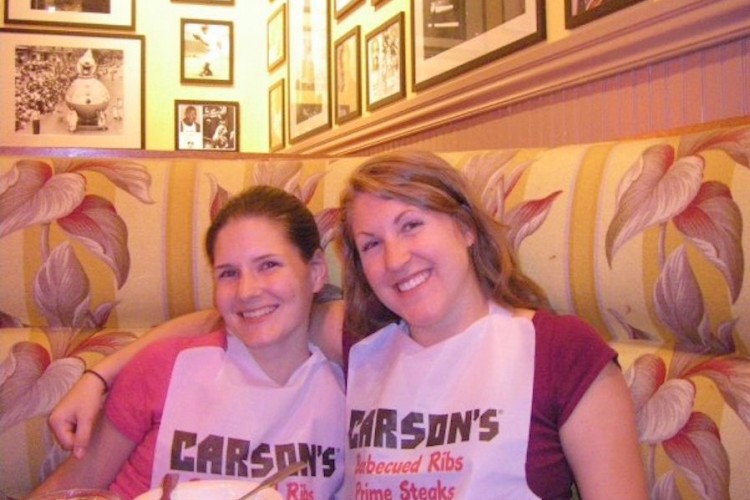When you type the phrase “going out to eat” into Google, a number of suggestions pop up. There’s “going out to eat alone,” “going out to eat as a vegan” and “going out to eat paleo.” But what if you’re going out to eat…and can’t eat?
Due to various diseases and conditions, there are people who have an extremely limited diet and can’t go out to eat in the traditional sense. They have to rely on feeding tubes or intravenous nutrition to survive. Steak, burgers, French fries and pizza may all be just a dream for them. Their “gourmet” dinner may be pureed, blenderized or come in an elegant 6-ounce bottle of Ensure.
But this story isn’t about what those of us with restricted diets are missing. It’s about what I want you to know. You can go out to eat in the traditional sense. I want to go, too! Going out to eat is about more than just the food. Getting together for lunch or dinner isn’t just about eating.
In our society, food brings people together. When people get together to share a meal, we certainly just don’t sit there, eat and leave. It’s about socializing, spending time together and enjoying each other’s presence. Holidays even revolve around food. Just because we may not be able to enjoy all the dishes being served doesn’t mean we don’t want to take part in every aspect of these traditions.
Many of us want to be invited when our friends go out to eat or have a dinner party. We totally understand you probably feel weird about inviting a friend who can’t eat to dinner. You may think it will make us feel bad or we’ll say no. Or you might be worried we’ll end up feeling awkward being around everyone else eating. But odds are we won’t.
Once a week, my co-workers and I take our clients out to eat. We generally go to the same restaurant every Friday night. One of the waitresses there has gotten to know us very well. After the first two or three weeks, she noticed I would only order a drink, and one night she politely pulled me aside to ask me why. Most people aren’t very familiar with gastroparesis so often I just go with a generic response: “I have some dietary restrictions.” So she kindly began telling me how the restaurant offered many different options for those with food allergies or who were gluten-free, vegan, etc. She was genuinely caring and truly wanted to find something that worked for me.
Finally, I told her it was a little more than an allergy or intolerance, but a condition called gastroparesis, and that, for the most part, I could only tolerate liquids. Of course, she turned right to the appetizer section and showed me where the soups were listed, which I could not eat, either, but I graciously thanked her for. Honestly, the experience was a little awkward, since I don’t usually talk to strangers about my condition, especially not in this setting. But would it ever stop me from going out to a restaurant again? Of course not! And it was a great opportunity to spread some awareness about a little-known disorder.
So if you’re thinking about inviting us out to eat but are worried we might feel bad having to watch others enjoy their food, invite us anyway. This is the life we have been living for quite a while, and we are beyond used to that awkward feeling of watching people eat. So please ask us. Invite us. Don’t forget us. Food isn’t just about eating. It brings people together. And sometimes, especially when you’re chronically ill, the one thing you need is to be around others who you know are supporting you and want to be in your company.


